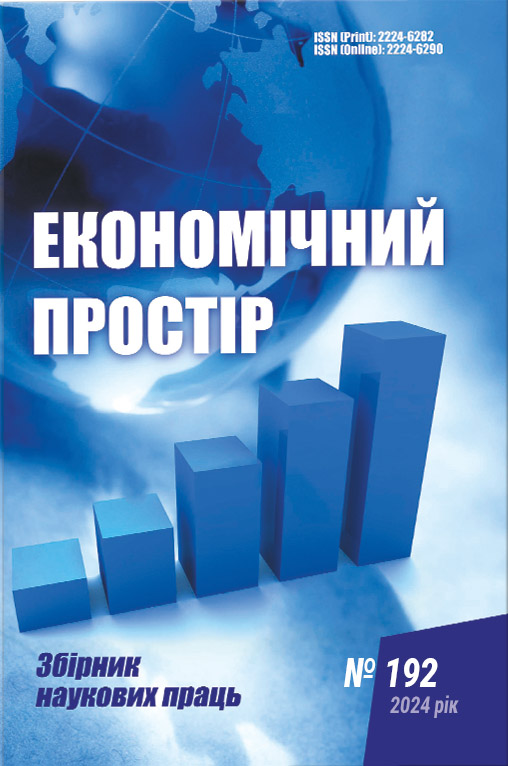Перейти до вмісту (натисніть Enter)
USE OF MODERN DIGITAL TECHNOLOGIES IN AUDIT: PROBLEMS AND PROSPECTS
Kononenko Lesіa
Gai Oleksandr

ЗАВАНТАЖИТИ СТАТТЮ

АНОТАЦІЯ
The article notes that the use of digital technologies is a traditional audit practice. It is emphasized that today au-dit procedures are mostly carried out using MS Excel. It is substantiated that the inhibition of the introduction and use of modern digital technologies by auditors is caused by several factors. The main factors are the traditional iner-tia of accounting and analytical specialists, the existence of a gap between accounting education and practice, and the focus on navigation rather than interpretation of source data when teaching modern digital technologies. It is proved that one of the ways to intensify the introduction of modern digital technologies in the audit is to bridge the gap between education and practice. It is emphasized that this involves revising the educational programs of auditors and applying an interdisciplinary approach to form integrated thinking in the training of auditors.
КЛЮЧОВІ СЛОВА
analysis, audit services, digital competences, education, practice
ПОСИЛАННЯ
1. Vitali, S., & Giuliani, M. (2024). Emerging digital technologies and auditing firms: Opportunities and chal-lenges. International Journal of Accounting Information Systems, vol. 53
2. Shapovalova, A., Kuzmenko, O., Polishchuk, O., Larikova, T., & Myronchuk, Z. (2023). Modernizatsiia natsionalnoi systemy obliku y audytu z vykorystanniam instrumentiv tsyfrovoi transformatsii [Modernization of the national accounting and auditing system using digital transformation tools]. Financial and Credit Activity Problems of Theory and Practice, no. 4(51), pp. 33–52
3. Oneshko S. V., Viter S. A., & Viremeichyk A. M. (2021). Stratehiia rozvytku audytu v umovakh tsyfrovoi ekonomiky [Audit development strategy in the conditions of the digital economy]. Investytsii: praktyka ta dosvid [In-vestments: practice and experience], no. 15, pp. 64–69
4. Nikolashyn, A. O. (2023). Tsyfrovyi audyt: bazovi elementy ta innovatsiini tekhnolohii [Digital audit: basic elements and innovative technologies]. Investytsii: praktyka ta dosvid [Investments: practice and experience], no. 9. pp. 75-80
5. Panasiuk V.M. (2021). Tsyfrovizatsiia vitchyznianoho audytu: trendy i perspektyvy [Digitization of the do-mestic audit: trends and prospects]. Infrastruktura rynku [Market infrastructure], no. 52. pp.190-194
6. Korol, V., Dmytryk, O., Karpenko, O., Riadinska, V., Basiuk, O., Kobylnik, D., Moroz, V., Safronova, O., Ali-sov, E., & Mishchenko, T. (2022). Elaboration of recommendations on the development of the state internal audit sys-tem when applying the digital technologies. Eastern-European Journal of Enterprise Technologies, vol. 1, no. 13(115), pp. 39–48
7. Vuković, B., Tica, T., & Jakšić, D. (2024). Challenges of using digital technologies in audit. Anali Ekonomskog Fakulteta U Subotici, 60(51), 15-30
8. Lois, P., Drogalas, G., Karagiorgos, A. & Tsikalakis, K. (2020). Internal audits in the digital era: opportunities risks and challenges. EuroMed Journal of Business, vol. 15 no. 2, pp. 205-217
9. Cao, T., Duh, R. R., Tan, H. T., & Xu, T. (2022). Enhancing auditors' reliance on data analytics under inspec-tion risk using fixed and growth mindsets. The Accounting Review, no. 97(3), pp. 131-153
10. Booker, D. D., Pelzer, J. R., & Richardson, J. R. (2023). Integrating data analytics into the auditing curricu-lum: Insights and perceptions from early-career auditors. Journal of Accounting Education, no. 64
11. Schmidt, P. J., Riley, J., & Swanson Church, K. (2020). Investigating accountants' resistance to move beyond Excel and adopt new data analytics technology. Accounting Horizons, no. 34(4), pp. 165-180
12. Savchenko, V., Kononenko, L., & Povod, T. (2024). Napriamy udoskonalennia pidhotovky fakhivtsiv u konteksti neobkhidnosti zabezpechennia zapytiv rozvytku finansovoho sektoru ta vyklykiv formuvannia «Industry 5.0» [Directions for improving the training of specialists in the context of the need to meet the demands of the devel-opment of the financial sector and the challenges of the formation of "Industry 5.0"]. Tavriiskyi naukovyi visnyk. Se-riia: Ekonomika [Taurian Scientific Herald. Series: Economy], no. (19), pp. 195-201
13. Blix, L. H., Edmonds, M. A., & Sorensen, K. B. (2021). How well do audit textbooks currently integrate data analytics. Journal of Accounting Education, no. 55
14. Novak, N., Krukovska, O., Skrypnyk, S., Shepel, I., & Koval, S. (2020). Methodological features of using in-ternational standards in accounting and audit training, International Journal of Management, 11 (6), pp. 820-827
15. Kononenko, L. V., & Nikolaieva, S. P. (2022). Transformatsiia systemy oblikovo-analitychnoho zab-ezpechennia yak skladovoi upravlinnia pidpryiemstvom v umovakh staloho rozvytku ta didzhytalizatsii suspilstva [Transformation of the system of accounting and analytical support as a component of enterprise management in conditions of sustainable development and digitalization of society]. Ekonomichnyi prostir [Economic space], no. (177), pp. 69-75
Savchenko, V., Kononenko, L., & Karnaushenko, A. (2023). Tsyrkuliarna ekonomika v umovakh formuvannia Suspilstva 5.0. [Circular economy in the conditions of the formation of Society 5.0]. Tavriiskyi naukovyi visnyk. Seriia: Ekonomika [Taurian Scientific Herald. Series: Economy], no. (16), pp. 166-174
Kyrylov Yu.Ie., Hranovska V.H., Krykunova V.M., Zhosan H.V., Boiko V.O. Tsyfrova ekonomika. Kryptovaliuty: navchalnyi posibnyk. [Digital economy. Cryptocurrencies: a tutorial] Kherson: OLDI-PLIUS. (in Ukrainian)

